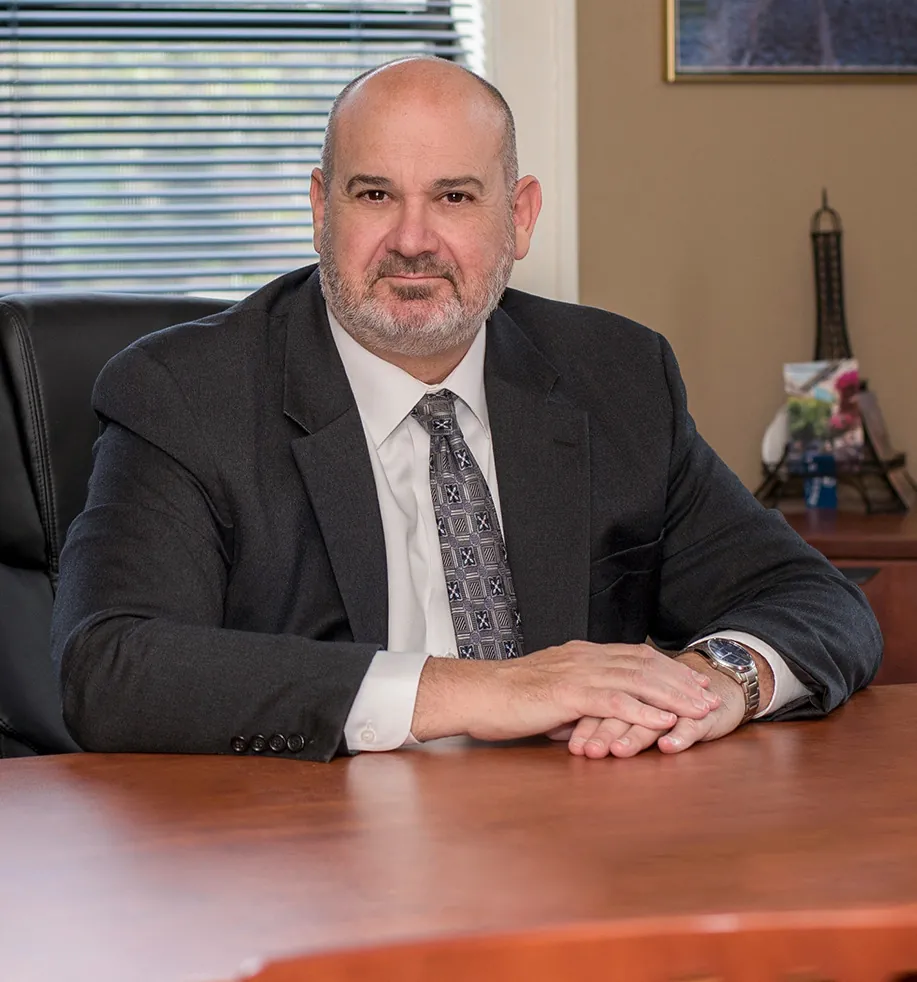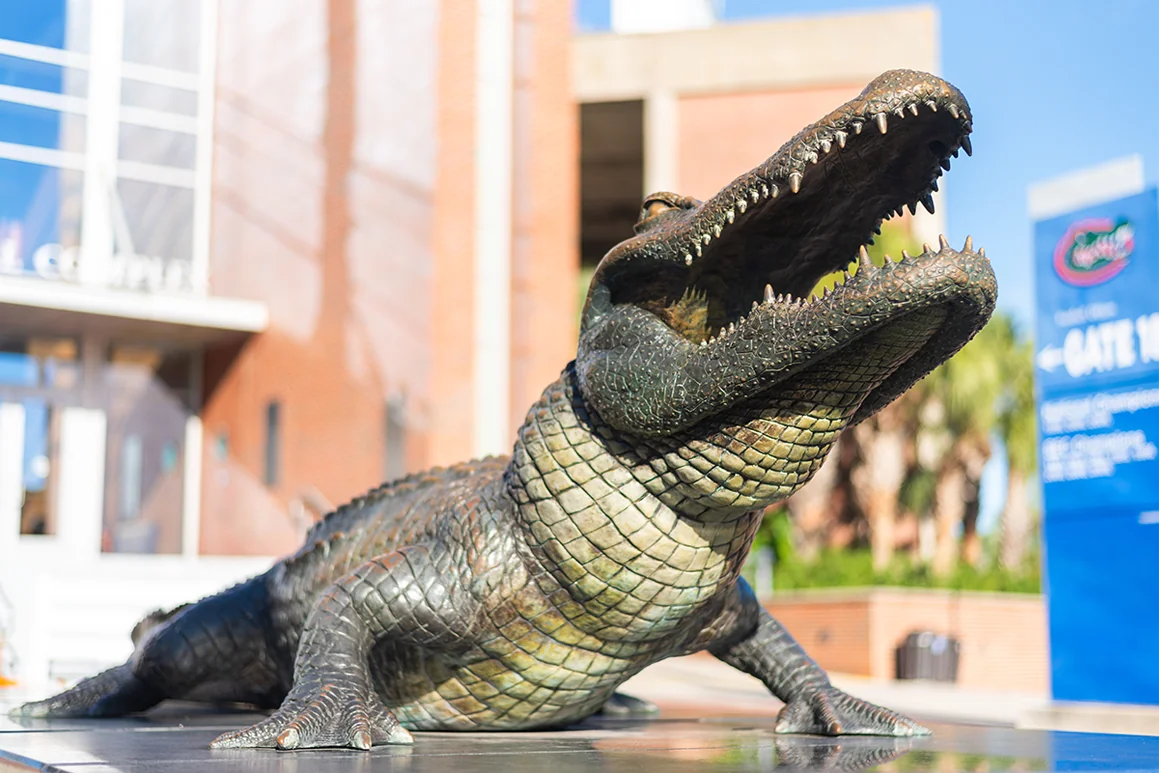If an individual is charged with any drug offense in Florida, they can receive very serious penalties if convicted. Anyone who has been convicted of a drug offense can possibly receive a jail or prison sentence, steep fines, a criminal record, an inability to pursue certain professions, and/or a driver’s license suspension. Some of the most commonly charged drug crimes in Florida can include, but are not limited to:
- Possession of a Controlled Substance
- Possession of Drug Paraphernalia
- Possession with Intent to Sell
- Possession with Intent to Distribute
- Drug Manufacturing
- Drug Trafficking
- Prescription Drugs / Medications
Many drug offenses can be prosecuted as federal drug crimes in addition to state offenses. A conviction for a drug charge under federal law can result in longer prison sentences in federal prison and much steeper fines.
Gainesville Drug Defense Attorney
If you have been charged with any drug or narcotics charge in Gainesville, or any of the surrounding areas in Florida, including Ocala, Alachua and Lake City, contact the Galigani Law Firm. There may be applicable defenses or mitigating factors to your particular situation that can lead to a reduced charge or even a dismissal of your drug charges. Additionally, students may require representation to protect their academic futures during a student disciplinary hearing. Call the Galigani Law Firm today for a free consultation at (352) 375-0812 about your alleged drug charge.
Florida Drug Charges Information Center
- Drug Crime Offenses in Gainesville
- Drug Charge Penalties in Florida
- Florida Locations Resulting in Increased Drug Charges
- Florida’s Schedule of Drugs
- Examples of Controlled Substances in Florida
- Alachua County Drug Court
- Gainesville Drug Offense Resources
Drug Crime Offenses in Gainesville
Chapter 893 of the Florida Statutes lists and defines all drug charges and penalties throughout Florida. This chapter is also known as the Florida Comprehensive Drug Abuse Prevention and Control Act. The following acts involving drugs or controlled substances are prohibited in Florida:
Possession of a Controlled Substance – Fla. Stat. § 893.13(6) – An individual can be charged with this offense if they have actual or constructive possession of a controlled substance without a lawful prescription. This offense can result in either a felony or misdemeanor conviction depending on the type of drug and the amount of the substance the person had in their possession.
Possession with Intent to Sell – Fla. Stat. § 893.13(1) – An individual can be charged with this offense if they possess a controlled substance with the intent to sell it, manufacture it or deliver the substance. This offense is punishable as a felony or misdemeanor offense depending on the type of substance possessed, where the substance was intended to be sold, and if the substance was possessed with the intent to be sold to or in front of a person under the age of 16.
Drug Manufacturing – Fla. Stat. § 893.13(1) – A person can be charged with this offense if they manufacture a controlled substance. A conviction for this offense can be a felony or misdemeanor offense, depending on the type of substance manufactured, where the substance was manufactured, and if the substance was manufactured in front of a person under the age of 16. Certain drug manufacturing offenses can lead to mandatory minimum prison terms.
Drug Trafficking – Fla. Stat. § 893.13(1) or (5) – A person can be charged with this offense if they sell or deliver any controlled substance. They can also be charged with this offense if they bring into Florida a controlled substance they were not lawfully authorized to possess. This offense is punishable as a misdemeanor or felony depending on the type of drug trafficked, the amount of the drugs and where the substances were trafficked to/from.
Purchase of a Controlled Substance – Fla. Stat. § 893.13(2) – An individual can be charged with this offense if they purchase or possess with the intent to purchase any controlled substance. This offense is punishable as a misdemeanor or felony depending on the type and amount of the substance that was possessed.
Penalties for a Drug Conviction in Florida
Penalties for drug charges in Florida are listed in Fla. Stat. §§ 775.082, 775.083 and 775.084. Although these statutes provide for minimum punishments depending on the degree of the offense, they can be increased depending on several factors. If an individual commits an offense that involves the death or serious bodily injury of another person, they are a habitual felony offender, violent career criminal or a habitual violent felony offender, they can receive a greater penalty. The following are minimum sentences under the Florida Statutes for each degree of drug offenses:
- A Misdemeanor of the Second Degree drug offense can result in a jail sentence up to 60 days and/or a fine up to $500.
- A Misdemeanor of the First Degree drug offense can lead to a jail sentence up to one year and/or a fine not greater than $1,000.
- A Felony of the Third Degree drug offense can result in a prison sentence not more than five years and/or a fine not exceeding $5,000.
- A Felony of the Second Degree drug offense can lead a prison sentence not greater than 15 years and/or a fine not more than $10,000;
- A Felony of the First Degree drug offense can result in a prison sentence up to 30 years and/or a fine up to $10,000.
- A Life Felony drug offense can result in imprisonment up to 30 years or not more than life imprisonment and/or a fine up to $15,000.
Places that Can Result in Increased Penalties for Drug Offenses
Certain places in Florida, as defined in Fla. Stat. § 893.13, can result in a higher degree drug charge. For example, if an individual commits a second-degree felony drug offense in any of the following places, they can receive a felony of the first-degree charge, and receive a mandatory prison sentence, in addition to mandatory fines and community service. Some of these places can include:
- Childcare facilities,
- Public or private elementary, middle or secondary schools,
- Community centers,
- State, county or municipal parks,
- Publicly owned recreational facilities,
- Public or private college, university or postsecondary educational institutions,
- Physical places of worship or where religious services are held,
- Public housing facilities, and/or
- Assisted living facilities.
Florida’s Schedule of Drugs
Drugs, or controlled substances, in Florida, are classified into five different “schedules” in the Florida Comprehensive Drug Abuse Prevention and Control Act. Schedule I substances are usually those that have the highest potential for abuse and no known medical applications. Schedule V substances are those with the least likelihood of abuse and commonly used medical applications.
- Schedule I substances are associated with a high likelihood for abuse and no known medical purpose in the United States. Some examples are heroin, marijuana, and methamphetamines.
- Schedule II substances are associated with a high likelihood of abuse but have common medical applications in the United States. Common examples are opiates, such as hydrocodone and Vicodin.
- Schedule III substances are associated with a lower potential for abuse than Schedule I or II substances and are commonly used for medical reasons in the United States.
- Schedule IV substances are associated with a lower potential for abuse than Schedule III substances and have common medical applications in the United States.
- Schedule V substances are associated with the least potential for abuse and are commonly used for medical purposes in the United States.
- Typically in Florida, the schedule a certain substance falls into will determine the degree of drug offense an individual is charged with. For example, if an individual commits an offense involving a Schedule I substance, they will usually be charged with a higher degree felony.
Examples of Controlled Substances in Florida
Under Florida law, controlled substances can include any prescription medication, medication without a prescription, pills, street drugs, chemicals, natural substances or man-made substances. Specific examples of controlled substances can include:
Prescription Pills / Medications
- Ambien, also known as Zolpidem
- Darvon, Darvocet
- Methadone
- Morphine, also known as Roxanol, Kapanol
- OxyContin, Percocet, Percodan
- Pure Codeine
- Pure Hydrocodone
- Ritalin, Concerta, Adderall
- Valium, also known as Diazepam
- Vicodin, Lortab or Lorcet
- Xanax, also known as Alprazolam
Street Drugs
- Amphetamines, also known as Uppers or Speed
- Benzoylmethylecgonine, also known as Cocaine, Blow, Coke or Coca
- Cathinone, also known as Bath Salts
- Ecstasy or MDMA, also known as Methylenedioxymethamphetamine
- GHB or the Date Rape Drug, also known as Gamma-hydroxybutyric acid
- Heroin, also known as Smack or Black Tar
- LSD or Acid, also known as Lysergic acid diethylamide
- Magic Mushrooms or Shrooms, also known as Psilocybin or Psilocyn
- Marijuana, also known as Tetrahydrocannabinol (THC), Cannabis, Marihuana, Pot, Bud, Weed or Chronic
- Methamphetamines, also known as Meth or Speed
- Opium, also known as Poppy, Poppy Seeds or Opiates
- PCP or Angel Dust, also known as Phenylcyclidine
Alachua County Drug Court
In order to avoid a jail or prison sentence, certain counties in Florida allow specific drug offenders to attend a drug court program. In Alachua County, alleged drug offenders who are allowed to participate in the drug court program are non-violent third-degree felony drug offenders.
Individuals who choose to participate in the Alachua Drug Court program are required to receive substance abuse evaluation and treatment, random urinalysis, pay fees or perform community service, and are subjected to weekly judicial monitoring for a minimum of 12 months. Once an individual successfully completes the program, their drug charges will be dismissed.
In order to be admitted to the Drug Court, an individual must be approved to participate in the program by the Florida Attorney General’s Office, be a non-violent drug offender, not have any prior criminal history, and not have any prior violent crime convictions.
Gainesville Drug Offense Resources
Alachua County Drug Court – This website provides more information about the Drug Court in Alachua County, who is eligible for the program, and requirements for participation in the program. The Alachua County Drug Court can be contacted at:
Alachua County Drug Court249 W University Ave
Gainesville, Florida 32601
Phone: (352) 491-4577
Narcotics Anonymous – Narcotics Anonymous (NA) is a non-profit organization created for individuals with a drug addiction to meet with and support other individuals recovering from substance addiction in order to stay drug-free. The website contains more information about the program and where individuals in Gainesville, Florida can attend a meeting.
Florida Comprehensive Drug Abuse Prevention and Control Act – This link is to Chapter 893 of the Florida Statutes, also known as the Florida Comprehensive Drug Abuse Prevention and Control Act. This website contains all illegal drug acts and penalties for committing such acts.
Drug Enforcement Administration – The Drug Enforcement Agency, or DEA, is a national governmental agency that seeks to enforce the United States’ laws and regulations regarding drugs and controlled substances. The DEA is responsible for charging individuals with federal drug offenses and imposing federal penalties.
Federal Drug Penalties – The Drug Enforcement Administration’s website provides information on the federal schedule of controlled substances, specific penalties for possessing, trafficking and distributing controlled substances, and specific penalties for federal drug offenses.
Galigani Law Firm | Florida Drug Crimes Lawyer
Contact the Galigani Law Firm today for a consultation about your criminal drug offense throughout Alachua County in Florida. Dean Galigani is an experienced criminal defense attorney in Gainesville who will make every effort to help you achieve the best possible outcome for your particular situation. Call the Galigani Law Firm at (352) 375-0812 or send an online message for a consultation about your alleged drug crime throughout the counties in Florida, including Marion County, Levy County, Columbia County and Gilchrist County.








